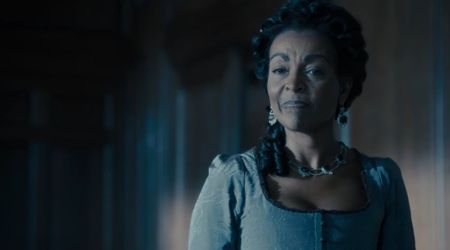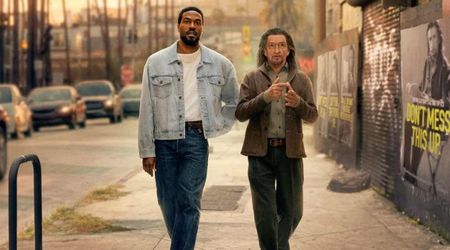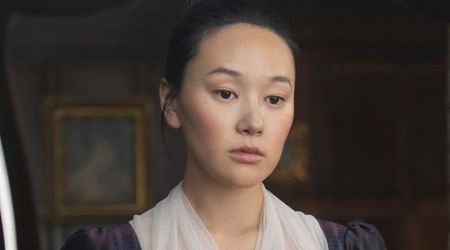'Suburra: Blood on Rome' Season 3 Review: Adami and Spadino's final ride gets nowhere close to original film

Spoilers for 'Suburra: Blood on Rome' Season 3
There's not a bone to be picked with the final third installment of Netflix's 'Suburra: Blood on Rome' or 'Suburra: La Series'. Not a single thing to complain about the prequel to the original Italian neo-noir movie that raged deafening chaos and rise to the top when it came to the political thriller genre. But that feeling lasts only in the final moments of the show, and luckily towards the steadily acquired explosive ending too, only, and only if one hasn't watched the original film. The Alessandro Borghi and Giacomo Ferrara-starrer sees the characters Aureliano and Spadino rise in a post-Lele era as vengeance runs rife and unexpected bloodbaths soak the streets of Rome. Sadly, killing off a central character within the first hour of the six-part finale season goes on to show how rushed things are as 'Blood on Rome' arrives at an ending where nothing resembles the beginning of the original film. Instead, it leaves us desiring a proper prequel more than ever before.
The premise of Season 3 is pretty much where we left off - immediately after the tragic events that involved Lele's suicide. Rome is still divided between organized crime families, and corruption soaring in the political scene as well as surrounding the Church and the Vatican. Sara Monaschi (Claudia Gerini) who usually took a deep dive into the Church is now more concerned with the recently elected mayor of Rome, Amedeo Cinaglia (Filippo Nigro), as the forbidden brotherhood between the Ostia and the Sincti family representatives blooms. In all of this, at the top is the most powerful and influential overlord Samurai (Francesco Aquaroli), but his endeavor to keep the criminal balance in the city intact is marred within the first episode.
Aureliano and Spadino crack open their thirst for avenging Lele's suicide by kidnapping Cinaglia's children and blackmailing him into giving up his mentor - Samurai. All it takes is a deserted backend of a warehouse, where Aureliano and Spadino ambush the overlord and take him out with two bullet wounds. The set up of this violent but shocking end is done right at the beginning of the season premiere, where a flashback shows Samurai's mother encouraging a very young version of him to ride a horse, showing the animal who runs the game here. And moments later in the episode, Samurai is confronted with the question of whether he enjoys business anymore or if it has become another chore for him. The foreshadowing couldn't get any more surreal, but wiping out such a central character still feels like an unexpected blow.
The progression of the plot thereon is quite systematic and with precision; sometimes too much. The reason Netflix's 'Suburra' rose to the ranks of 'Narcos', or the more recent 'Money Heist' was the strong emotional connect that not only bound the characters with each other but also enveloped us in the layers of neo-noir so effectively, that it never felt like we were bystanders witnessing the crime and thrill from the comforts of our home. Viewers were always in on the action - be it the violence or the raw emotion. Season 3 however takes the emotional connection out in its pursuits to encapsulate all that must have happened in events leading up to the original movie. And in its brazen attempt, also and simultaneously offers a deliberate middle finger to the film. The final season is like a rebel child that does not want to become its parent material, and in this attempt to being edgy and individualistic, loses all that made 'Suburra' so authentic.
We have known the series to be different from the film in its set up of the relationship between Aureliano and Spadino; their unlikely bond was more friendship than rivalry always. At the end of the final season, there's little connecting the series and the movie apart from the cast essentially. Even when it comes to offering closure, the series achieves that feat only partially. Why Netflix chose to end the series at a short six-episode when American ones unnecessarily drag on to a whopping nine is beyond comprehension. The pace is sometimes too frenzied, even when slowed down to a negative speed.
The most criminally marred arc here has to be that of Sara's, who is reduced from a Season 1 core element to passing cameos in Season 3. The lack of her presence is strategically replaced by the budding dynamics between Nadia (Federica Sabatini) and Angelica (Carlotta Antonelli), but it doesn't make for a compelling enough narrative. If anything, these characters - much like the others - are supporting elements in the arc of their counterparts - Aureliano and Spadini - almost as if to passively tout the exceptional talents the actors bring to the screen. The technicalities, especially when it comes to the shooting and explosions, complement the cinematography. Unfortunately, the exciting direction and editing is not enough to make up for how far the apple drops from the tree; neither does it do justice to the glaring difference between the two. In short, Season 3 is good as long as you don't fall back on to the original. A wise way to enjoy the series would be to watch it before the film.
'Suburra: Blood on Rome' Season 3 is now available for streaming only on Netflix.










